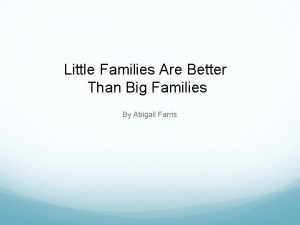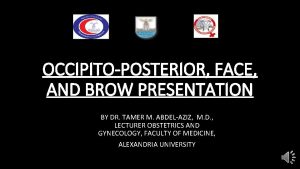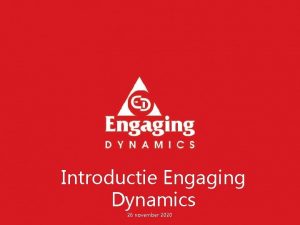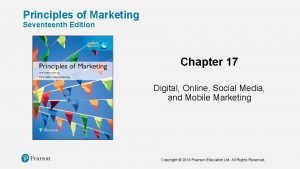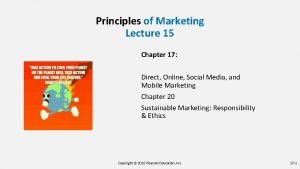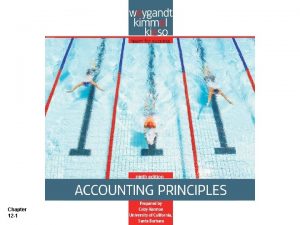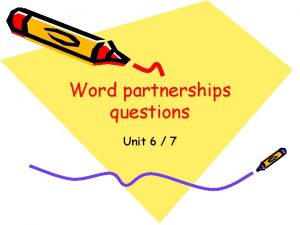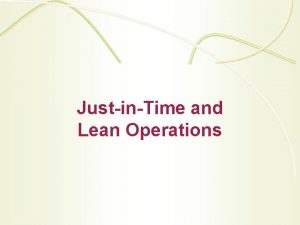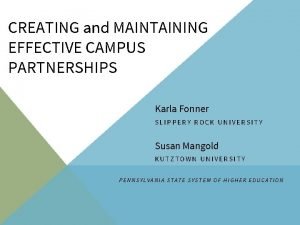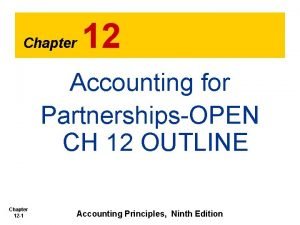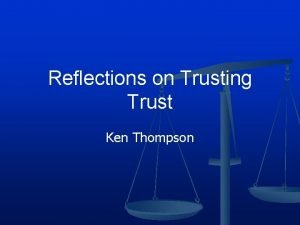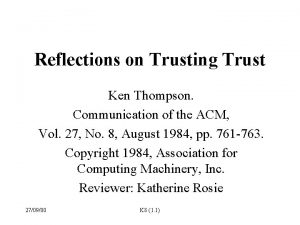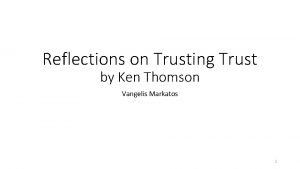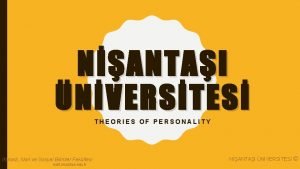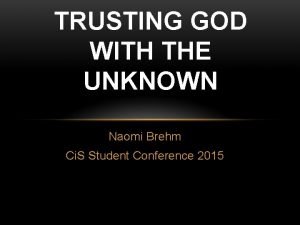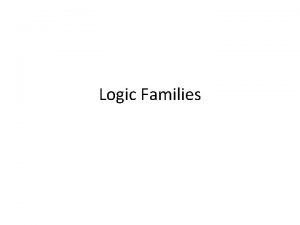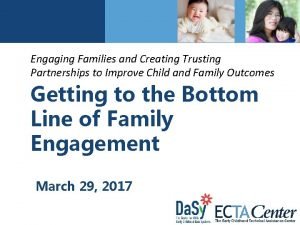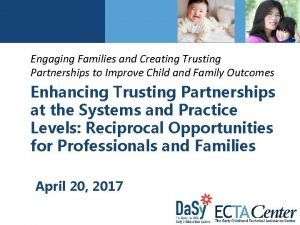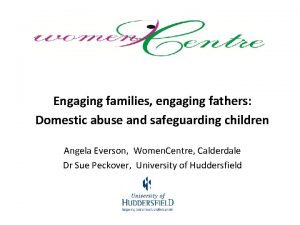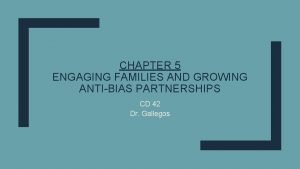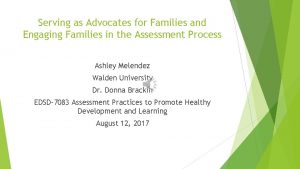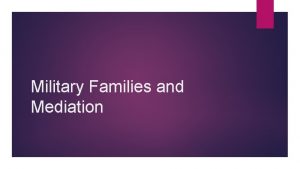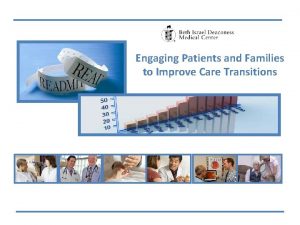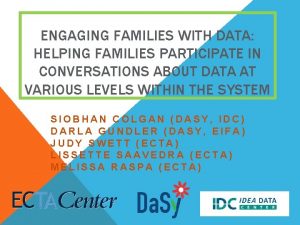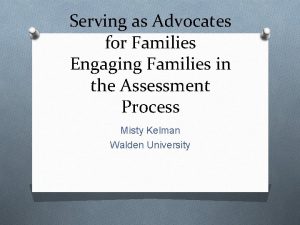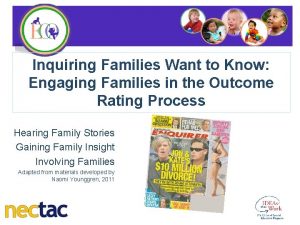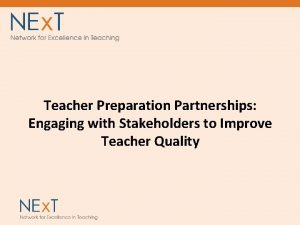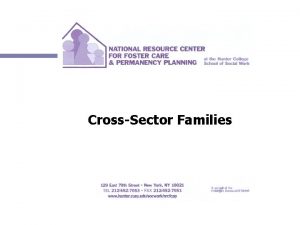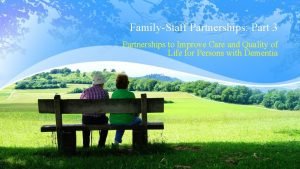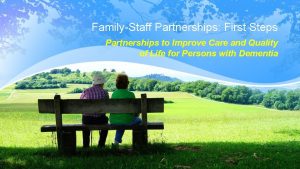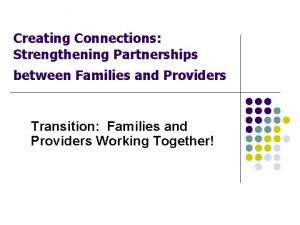Engaging Families and Creating Trusting Partnerships to Improve






















- Slides: 22

Engaging Families and Creating Trusting Partnerships to Improve Child and Family Outcomes More on Infusing Partnership Principles and Practices into Family Engagement Activities June 21, 2017

Meeting Basic Needs Advocating Trusting Partnerships Re sp ec t t en itm mm Co Participating and Volunteering e nc ete mp Co Ad vo ca cy Communication Equality Extending Learning 2 Individualizing Referring and Evaluating

Type 4: Extending Learning • Guiding families to teach child through everyday activities & routines • Making home visits • Advocating for preferred informational, emotional, & logistical support • Addressing behavioral challenges • Helping to connect children/families to neighborhood & community peers • Supporting children to be included in community recreational activities • Supporting children/families to attend community events • Building community partnerships 3

Type 5: Participating and Volunteering • Creating family friendly environments within the program • Encouraging families to attend program/community events & meetings related to child development • Guiding families in how to assist with learning as a volunteer • Guiding families in how to contribute to other program tasks • Guiding families to volunteer in community events that have school, student & family benefits 4

Available at: https: //eclkc. ohs. acf. hhs. gov/hslc/ttasystem/family/docs/ncpfce-markers-ofprogress. pdf 5

Type 6: Advocating • Taking advantage of resources from Parent Training & Information Centers • Participating in advocacy & leadership training • Mentoring families & being mentored by families in advocacy activities • Informing families about program & community advocacy events & encouraging them to consider participating 6

Review of Types of Family Engagement • • • 7 Meeting Basic Needs Referring & Evaluating Individualizing Extending Learning Participating & Volunteering Advocating

High-quality systems support the implementation of effective practices to improve outcomes for children and families. Governance Result Quality Standards Finance Implementation of Effective Practices Building High-Quality Systems Accountability & Quality Improvement Good outcomes for children with disabilities and their families Personnel/Workforce Data System ectacenter. org/sysframe 8

State Systemic Improvement: A Focus on Family Outcomes Kirsten Siegenthaler & Marie Ostoyich NY Bureau of Early Intervention 9

New York State’s Early Intervention Program • Serves 68, 000 children and their families each year • 1, 200 billing and 14, 000 rendering providers • Across 57 Counties and New York City • Birth rate of almost 250, 000 10

Family-Centered Services • Early intervention services are family-centered • Focus of NY’s State Systemic Improvement Plan (SSIP) • National Center for Special Education Accountability Monitoring (NCSEAM) engaged families and other stakeholders to develop the Family-Centered Services Scale – Statements about the family’s experience with early intervention (Strongly Agree to Strongly Disagree) – Incorporated into a survey completed by families 11

NCSEAM’s Family-Centered Services Scale 12

How will we improve? • Using The Breakthrough Series: IHI’s Collaborative Model for Achieving Breakthrough Improvement • Small changes implemented in daily routines and interactions – Supported by outside experts and peers as coaches – Cycle of continuous improvement • Plan (look at data, identify an issue, review evidence-based strategies) • Do (implement the change) • Study (collect data and review routinely – daily, weekly, monthly) • Act (adopt if it works, adapt if needed or abandon if it doesn’t) 13 *IHI: Institute for Healthcare Improvement

Key: The changes will be embedded in every day interactions with families. 14

Local Implementation Teams Participants: Early Intervention Officials/Designees Service Coordinators Quality Assurance Officers Early Intervention Providers/Therapists Families 15 Requirements: 1 -day In-Person Learning Sessions (start) Monthly Coaching Webinars (11 months) Conference Calls, Webinars, Email Contact

Meeting Basic Needs Advocating Trusting Partnerships Re sp ec t t en itm mm Co Participating and Volunteering e nc ete mp Co Ad vo ca cy Communication Equality Extending Learning 16 Individualizing Referring and Evaluating

Key Ethical Principles Family as Foundation • Family as core unit of society • Family as principal shaper & provider of physical, emotional, fiscal, & other support for children • Family as source of life-long support Dignity • Dignity as an ascribed status, as a ‘regarded as’ standing within a community • Dignity as a state of being worthy, honored, & esteemed, not for what one can do (or cannot do) but simply as a person with inherent worth Community • Community as more than a place or space • Membership & belonging to a greater societal whole • Having support in community programs 17

IDEA’s Long-Term Goals “Improving educational results for children with disabilities is an essential element of our national policy of ensuring: • Equality of opportunity • Full participation • Independent living • Economic self-sufficiency. ” 18

New York Presentation Resources and Presenter Contact Information Resources: • NYS Early Intervention Program: http: //www. health. ny. gov • Quality Improvement Breakthrough Series: http: //www. ihi. org Presenters: • Kirsten Siegenthaler: Kirsten. Siegenthaler@health. ny. gov • Marie Ostoyich: Marie. Ostoyich@health. ny. gov 19

Online Webinar Resources http: //ectacenter. org/~calls/2017/familyengagement. asp Power. Point Handouts Suggestions for Follow-up Reflection/Discussion Resources and References 20

Tell Us What You Think! Share your ideas for follow-up to this webinar series by emailing us at: ectacenter-families@unc. edu 21

The contents of this tool and guidance were developed under grants from the U. S. Department of Education, #H 326 P 120002 and #H 373 Z 120002. However, those contents do not necessarily represent the policy of the U. S. Department of Education, and you should not assume endorsement by the Federal Government. Project Officers: Meredith Miceli, Richelle Davis, and Julia Martin Eile. 22
 Big families vs small families
Big families vs small families Fundal level
Fundal level Dynamisch verbinden
Dynamisch verbinden Marketing involve engaging directly with carefully targeted
Marketing involve engaging directly with carefully targeted Marketing involve engaging directly with carefully targeted
Marketing involve engaging directly with carefully targeted Accounting for partnerships chapter 12 solutions
Accounting for partnerships chapter 12 solutions Accenture development partnerships
Accenture development partnerships Complete the word partnerships with brand product or market
Complete the word partnerships with brand product or market Product development partnerships
Product development partnerships What is jit
What is jit Maintaining effective partnerships
Maintaining effective partnerships Account www.publicpartnerships.com
Account www.publicpartnerships.com Epsrc prosperity partnerships
Epsrc prosperity partnerships Chapter 12 accounting for partnerships answers
Chapter 12 accounting for partnerships answers Reflections on trusting trust – ken thompson
Reflections on trusting trust – ken thompson Reflections on trusting trust wikipedia
Reflections on trusting trust wikipedia Reflections on trusting trust
Reflections on trusting trust Organismic trusting
Organismic trusting Trusting god in perilous times
Trusting god in perilous times Trusting god in all circumstances
Trusting god in all circumstances Susprecious
Susprecious Trusting god with the unknown
Trusting god with the unknown Characteristics of logic family
Characteristics of logic family
